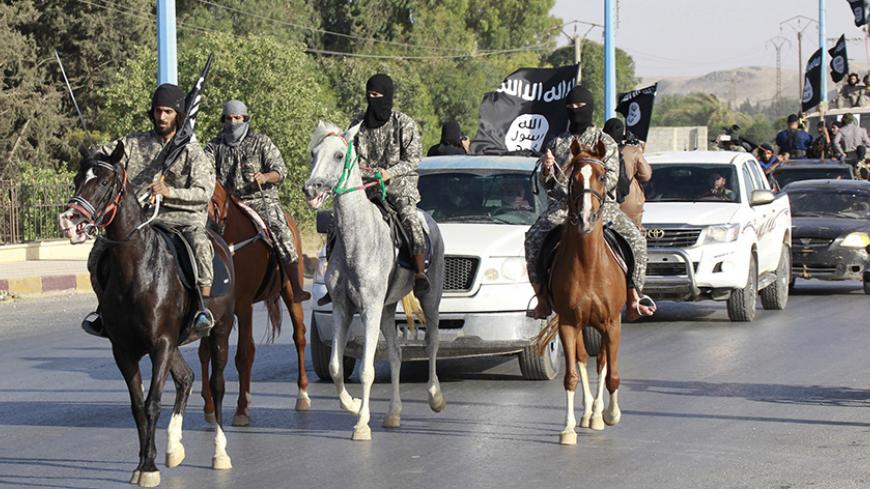Just like any Middle Eastern leader, Islamic State (IS) leader Abu Bakr al-Baghdadi (Ibrahim al-Badri) relies upon his relatives to guarantee his own security. However, ever since his spectacular appearance in the Mosul mosque in July, he has been missing a great deal of freedom of movement, which has prompted him to resort to traditional ways to camouflage his whereabouts. Meanwhile, the new generation of leaders in contact with him remains anonymous after leaders close to him were killed during recent months.
A researcher in the field of armed groups, Hashem al-Hashemi, spoke to Al-Monitor about leaders currently surrounding Baghdadi. Chief among these is Abu Bakr al-Khatuna, who hails from Zammar in Mosul, and Hashemi — who published a few weeks ago a book titled “The IS World” — knows that he is one of the most prominent leaders that Baghdadi counts on, being his personal friend. Noman al-Zaidi, according to Hashemi, is another friend of Baghdadi who was killed in Anbar in 2011.


